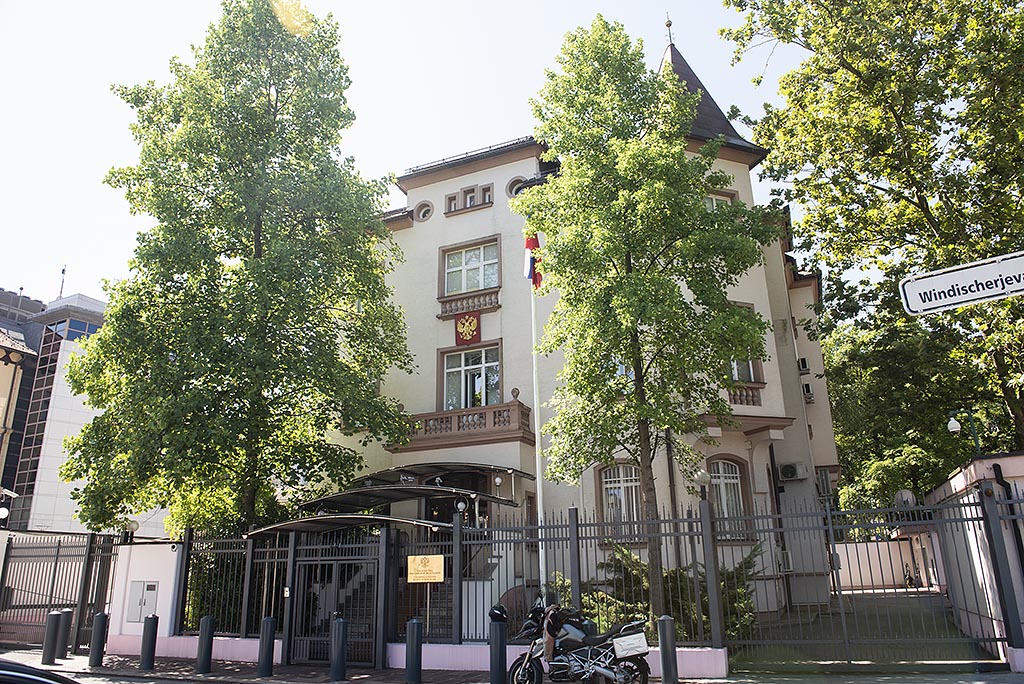The Foreign Ministry summoned Russian Ambassador Timur Eyvazov to express Slovenia’s strongest protest against and shock at the killings of civilians in Bucha and other towns in Ukraine. The ambassador was also notified that Slovenia is reducing the number of staff at the Russian embassy in Ljubljana from 41 to eight, or by 80%.
The ministry said in a press release on Tuesday that it expressed to Eyvazov its “strongest protest and dismay at the massacres of Ukrainian civilians in Bucha and other towns, which satellite and other images have revealed after the towns were liberated from the occupation of the Russian aggressor forces”.
Together with its partners and allies in collaboration with the International Criminal Court, Slovenia will do everything in its power for the perpetrators of these horrendous crimes to be brought to justice.
The Russian ambassador was told that in line with Article 11 of the Vienna convention on diplomatic relations, Slovenia is reducing the number of diplomats and administrative and technical staff at Russia’s embassy in Slovenia.
The provision says that the receiving state, in this case Slovenia, may require that the size of a mission be kept within limits considered by it to be reasonable and normal, given the circumstances and conditions in the receiving state and the needs of the particular mission.
Slovenia decided to adjust the number of staff at the Russian embassy to the number of staff it has at its embassy in Moscow.
The ministry did not provide an exact number at first, but PM Janez Janša tweeted that the number would be reduced “drastically”.
It later confirmed for the STA the information that the cut would involve 33 staff – from the current 41 diplomats and other staff to just eight.
With 41 staff, the Russian embassy is by far the largest diplomatic mission in Slovenia, with the ministry saying that the figure was much higher than for instance at the US or Chinese embassy.
The ministry explained the measure had been harmonised at EU level, noting that several EU countries had recently decided to cut the number of Russian diplomats, including Germany, France and Italy.
These countries have said they have opted for the move to secure national security as the expelled Russian diplomats have been said to work as spies, while the Slovenian ministry did not list any such reasons.
It stressed, however, that the decision had been made under Article 11 of the Vienna convention, not under Article 9, which says that the receiving state can declare one or more more staff of the sending state persona non grata.
The ministry said that it had also called in Slovenian Ambassador to Russia Branko Rakovec for consultations.
By: J.S., STA


